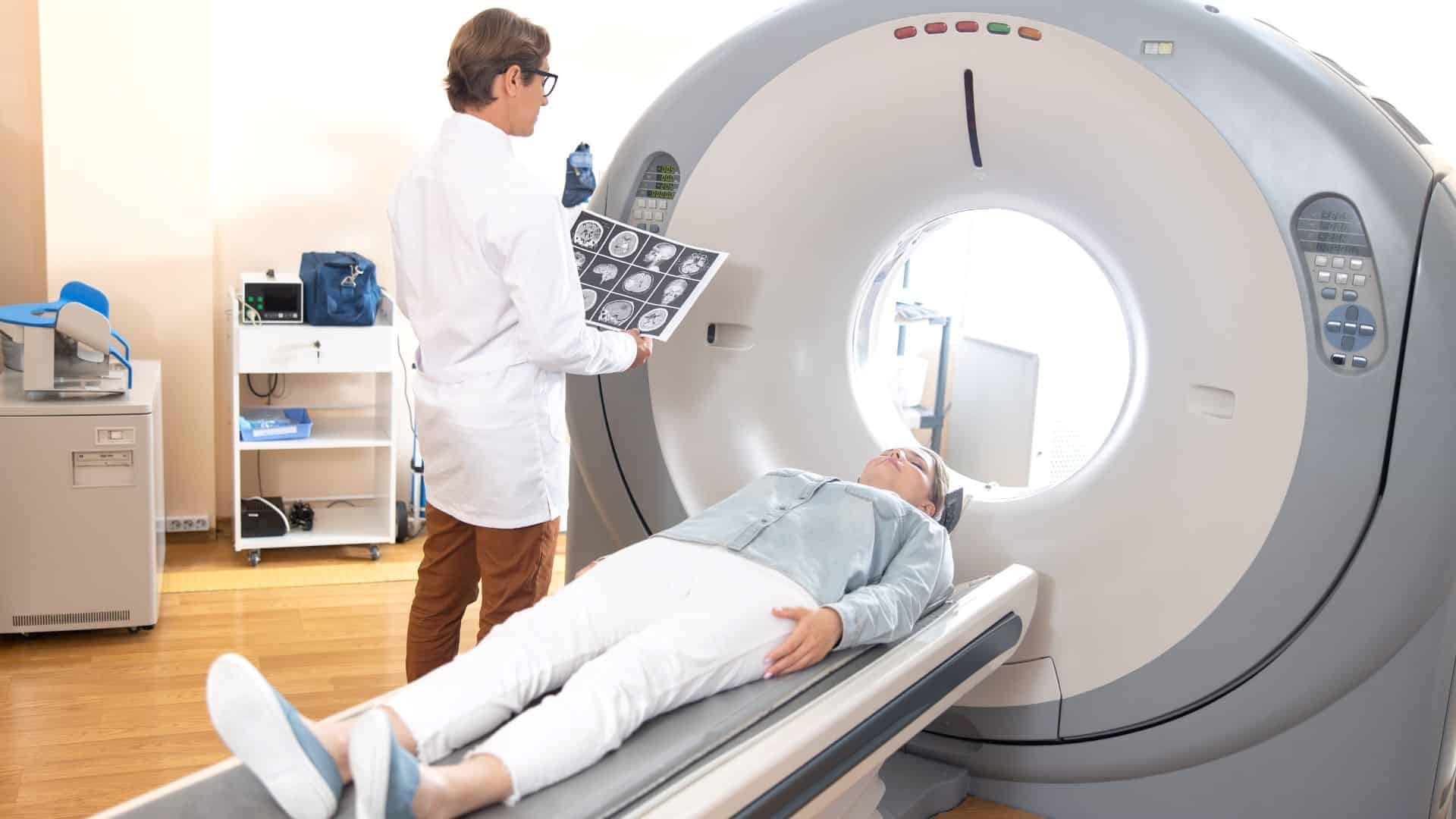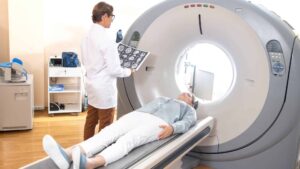
The CT scan is a medical diagnostic tool with technology that plays a crucial role in unraveling the mysteries within our bodies. CT scan is a powerful tool that has revolutionized medical imaging. Here is an in depth review of what CT scans are, what they diagnose, and how to prepare for this diagnostic procedure.
Understanding CT Scans
A CT scan, or computed tomography scan, is a non-invasive medical imaging technique that combines X-rays with computer technology to create detailed cross-sectional images of the body. Unlike traditional X-rays, CT scans provide a more comprehensive view of internal structures, allowing healthcare professionals to examine soft tissues, organs, and bones with remarkable precision.
A computer then processes these images to create detailed cross-sectional slices, offering a three-dimensional view of the targeted area. This technology provides valuable insights into the body’s internal workings, aiding in detecting and diagnosing various medical conditions. (Johns Hopkins Medicine, 2022)
What Do CT Scans Diagnose?
The versatility of CT scans in diagnosing a wide range of medical conditions. These include but are not limited to:
- Injuries: CT scans effectively detect injuries to bones, joints, and soft tissues. CT scans offer detailed images that help physicians make accurate diagnoses, whether it’s a fracture, dislocation, or ligament tear.
- Cancer: CT scans play a crucial role in cancer diagnosis and staging. They can detect tumors, determine their size and location, and assess whether cancer has spread to surrounding tissues or organs.
- Vascular Conditions: CT angiography is a specialized form of CT scanning focusing on blood vessels. It helps diagnose conditions such as aneurysms, blockages, and malformations in the blood vessels.
- Infections and Inflammation: CT scans are valuable in identifying diseases and inflammation in various organs, such as the lungs, abdomen, and pelvis. They assist in pinpointing the location and extent of these conditions for effective treatment planning.
- Brain Disorders: CT scans of the head can reveal abnormalities such as tumors, bleeding, and structural issues within the brain. They are often used in emergencies to assess head injuries.
(Mayo Clinic, 2022)
Preparing for a CT Scan
Before undergoing a CT scan, proper preparation is essential to ensure accurate results and a smooth experience. Here’s a comprehensive guidelines for preparing for a CT scan, including:
- Fasting: Depending on the type of CT scan, you may be required to fast for a few hours before the procedure. This is common for scans involving the abdomen and pelvis, as it helps improve the clarity of the images.
- Medication Adjustments: Inform your healthcare provider about any medications you take, as certain medications may interfere with the scan. They may advise you to adjust your medication schedule temporarily.
- Contrast Agents: A contrast dye may sometimes enhance the visibility of specific structures or blood vessels. It’s crucial to inform your healthcare team about allergies or previous reactions to contrast agents.
- Clothing and Jewelry: Wear comfortable, loose-fitting clothing and leave jewelry at home. Metal objects can interfere with the CT scan, so removing them before the procedure is essential.
- Health History: Provide a comprehensive health history, including information about previous surgeries, existing medical conditions, and allergies. This information helps the healthcare team tailor the procedure to your specific needs.
CT Scan: An Invaluable Diagnostic Tool
CT scans have become invaluable tools in modern medicine, enabling healthcare professionals to delve into the intricacies of the human body with unprecedented detail. Whether it’s diagnosing injuries, detecting cancer, or assessing vascular conditions, CT scans play a pivotal role in enhancing the accuracy of medical diagnoses.
As a patient, understanding the fundamentals of CT scans and preparing adequately for the procedure can contribute to a more effective and efficient diagnostic process. By following the guidelines provided by medical professionals, individuals can ensure that they receive the maximum benefit from this advanced imaging technology.
Works Cited
Johns Hopkins Medicine. “CT Scan versus MRI versus X-Ray: What Type of Imaging Do I Need?” Johns Hopkins Medicine, 6 Sept. 2022, www.hopkinsmedicine.org/health/treatment-tests-and-therapies/ct-vs-mri-vs-xray.
Mayo Clinic. “CT Scan.” Mayo Clinic, Mayo Foundation for Medical Education and Research, 6 Jan. 2022, www.mayoclinic.org/tests-procedures/ct-scan/about/pac-20393675

